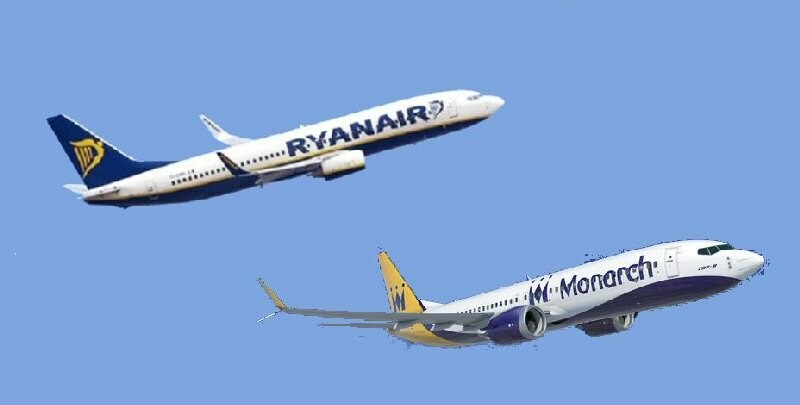A Tale of Two Airlines
It wasn’t the best of times, it was the worst of times, it wasn’t the age of wisdom, it was the age of foolishness, it wasn’t the epoch of belief, it was the epoch of incredulity …. So wrote Charles Dickens (or something very similar).
Who would believe the recent happenings with Ryanair and Monarch? Certainly not the poor travellers who have lost their holidays - their trips plans in tatters. In many instances they will have lost considerable sums of money. I am one of the lucky ones. I had flights booked on Monarch for December, paid by credit card, and American Express could not have been more helpful and friendly in refunding what I paid. I have had to buy tickets with another airline which are costing me an additional 50% but it could have been worse.
Whilst both airlines have caused a good number of travellers a good deal of grief, the circumstances surrounding the issues the two airlines have faced are quite different from each other.
Starting with Monarch: like Air Berlin and Alitalia, which both entered administration this summer, Monarch has been unable to compete in Europe. These smaller airlines have come up against their much larger competitors who are able to spread their fixed costs over many more ticket sales and keep their ticket prices down. In recent times, the weaker pound affected Monarch. Most of the airline’s revenues were in Sterling but it had significant costs in both US Dollars and the Euro.
Its owners since 2014, Greybull Capital, has twice saved the Monarch Group by emergency injections of capital, just October last year putting £165 million into the business.
What’s to be done for the consumer? Many travellers would like to be forewarned that a travel company’s financial situation is looking dire, so that they could book elsewhere. Of course, this could never be put into practice because it would just be hastening the death of a company that might be able to turn itself around.
The Civil Aviation Authority has done a fantastic job of repatriating stranded travellers and its ATOL scheme will refund those who purchased package holidays with Monarch. Those who bought flights and paid with their debit cards will not be so lucky. There is a process called chargeback that involves the card issuer (your bank) requesting a refund from Monarch’s administrators, KPMG, but whether there will be enough money in the kitty after paying preferential creditors, nobody knows.
Perhaps it is time for the travel industry to meet with the banks and discuss the situation. Travel is one of the few purchases where you hand over substantial sums of money but cannot walk out of the shop with the product. Maybe the banks could insure or self-insure against travel company collapses and directly protect their customers’ advance purchases? Wouldn’t it be nice to see banks putting in place a scheme that will help their customers?
As for Europe’s largest airline, Ryanair, the staff rostering issues there simply defy belief. How on earth could the airline have allowed itself to get into such a mess? However, to put this into perspective, the 315,000 or so passengers affected are less than one quarter of one percent of Ryanair’s passenger carryings. This sounds insignificant and the airline’s lowest cost flights ethos will continue to bring in all the passengers it needs. However, imagine a scenario where pilots and cabin crew are emboldened to take collective action to improve their terms of employment and Michael O’Leary with typical bloody mindedness reacts to this by thinking he can call their bluff. We could potentially be seeing many more Ryanair flights cancelled. If that happens, there are certainly plenty of airlines that would love to have his passengers booking with them!
